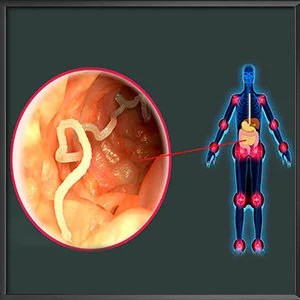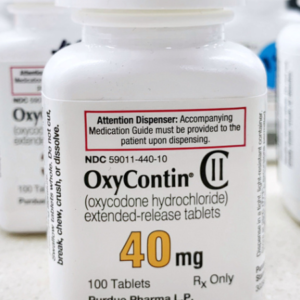AVAILABLE WITH WORLD WIDE DELIVERY
Fast Delivery
delivered to your door
Worldwide delivery
Reliable delivery options
Secure Payment
100% secure payment
Online Support
Live chat online
Medications for Effective Pain Relief
Analgesics are medications used to alleviate pain. They can be categorized into different types, including nonsteroidal anti-inflammatory drugs (NSAIDs), such as ibuprofen, which reduce pain and inflammation; acetaminophen (paracetamol), which relieves mild to moderate pain by inhibiting pain signals in the central nervous system; opioids like morphine, which bind to opioid receptors to block pain transmission for severe pain relief; and adjuvant analgesics, which are medications used for conditions other than pain but can also provide pain relief. It’s important to use analgesics as directed by a healthcare professional and be aware of their potential side effects and precautions.

Men’s Health

Pain Reliever

Children Health

Painkillers and NSAIDs USA

When it comes to choosing painkillers that are considered safer for the liver, there are a few options to consider. It’s important to note that even though these medications are generally considered safer for the liver, they should still be used according to the recommended dosage and under the guidance of a healthcare professional. Here are some painkillers that are commonly considered to have a lower risk of liver toxicity:
Acetaminophen (paracetamol): Acetaminophen is generally considered safe for the liver when used in recommended doses. However, it’s crucial to adhere to the recommended maximum daily dose (usually around 4,000 milligrams per day for adults) and avoid exceeding it. High doses or long-term use beyond the recommended limits can potentially cause liver damage.
NSAIDs (Nonsteroidal Anti-Inflammatory Drugs): NSAIDs like ibuprofen, naproxen, and aspirin are generally safe for the liver when used for short durations and at recommended doses. However, prolonged or excessive use of NSAIDs can sometimes lead to liver damage, particularly if there are pre-existing liver conditions or if they are taken in combination with other medications that can affect the liver.
Topical Analgesics: Topical pain-relieving creams, gels, or patches that are applied directly to the skin can provide localized pain relief. Since they are applied externally, they have minimal systemic absorption and, consequently, a lower risk of liver toxicity compared to oral painkillers.
Yes, certain painkillers can cause drowsiness or drowsy side effects in some individuals. This effect is more commonly associated with certain types of painkillers, such as opioids and certain over-the-counter medications.
Opioids: Stronger painkillers like opioids, including medications such as codeine, morphine, and oxycodone, are known to have sedating effects. These medications can cause drowsiness, dizziness, and a feeling of sleepiness. It’s important to use opioids as prescribed and avoid activities that require alertness, such as driving or operating heavy machinery, while under their influence.
Antihistamines: Some over-the-counter painkillers, such as those containing diphenhydramine or doxylamine, may include antihistamines for their additional sedative properties. These antihistamines can cause drowsiness and may be included in pain relief formulations intended to promote sleep or provide additional relaxation.
Muscle Relaxants: Certain muscle relaxants prescribed for pain relief, such as cyclobenzaprine, can have sedating effects. These medications are often used to alleviate muscle spasms and may cause drowsiness as a side effect.
Painkillers can be dangerous if not used properly or if certain precautions are not followed. Here are some reasons why painkillers can be potentially dangerous:
Side Effects: Painkillers, especially those belonging to the opioid class, can have various side effects such as drowsiness, dizziness, nausea, constipation, respiratory depression, and even addiction. Non-opioid painkillers like NSAIDs can also have side effects like stomach ulcers, gastrointestinal bleeding, kidney problems, and increased risk of cardiovascular events. It’s important to use painkillers as directed and be aware of potential side effects.
Overdose: Taking more than the recommended dose of painkillers can lead to an overdose, which can have serious consequences, including organ damage, respiratory depression, and even death. This risk is particularly elevated with opioids, as they can depress the central nervous system and suppress breathing.
Drug Interactions: Painkillers can interact with other medications, including prescription drugs, over-the-counter drugs, and herbal supplements. These interactions can potentiate the effects of painkillers or increase the risk of side effects. It is important to inform your healthcare professional about all the medications you are taking to minimize the risk of harmful interactions.
Addiction and Dependence: Opioid painkillers, in particular, carry a significant risk of addiction and dependence. Prolonged use or misuse of opioids can lead to physical and psychological dependence, making it challenging to stop using them without experiencing withdrawal symptoms. Addiction to opioids can have severe consequences for individuals and their families.
Liver and Kidney Damage: Certain painkillers, particularly those containing acetaminophen or NSAIDs, can cause liver or kidney damage if used in high doses or over a prolonged period. Individuals with pre-existing liver or kidney conditions are particularly at risk.
Allergic Reactions: Some people may have allergic reactions to certain painkillers, leading to symptoms such as rash, itching, swelling, or difficulty breathing. Severe allergic reactions can be life-threatening and require immediate medical attention.
a person who is abusing prescription painkillers might take larger doses to achieve a euphoric effect and reduce withdrawal symptoms. these larger doses can cause breathing to slow down so much that breathing stops, resulting in a fatal overdose. Low-income people and those living in rural areas.
Certain painkillers, particularly nonsteroidal anti-inflammatory drugs (NSAIDs), can help alleviate menstrual pain and reduce the intensity of menstrual cramps. However, painkillers do not directly stop or halt the menstrual period itself.
NSAIDs, such as ibuprofen and naproxen, work by inhibiting the production of prostaglandins, which are hormone-like substances involved in triggering uterine contractions and inflammation during menstruation. By reducing the levels of prostaglandins, NSAIDs can help alleviate menstrual pain and reduce the severity of cramps.
While NSAIDs can provide relief from menstrual pain, they do not stop or interrupt the menstrual cycle. Menstruation is a natural process that occurs due to hormonal changes in the body, and it cannot be halted or controlled by painkillers alone.
It’s important to note that if you are experiencing unusually heavy or prolonged periods, or if you have concerns about your menstrual cycle, it is advisable to consult with a healthcare professional. They can evaluate your specific situation and provide appropriate guidance and treatment options.
No, painkillers cannot prevent pregnancy. Painkillers, such as over-the-counter analgesics or prescription medications, are designed to relieve pain and manage symptoms but they do not have any contraceptive effects.
If you are looking to prevent pregnancy, it is important to use reliable contraceptive methods such as hormonal contraceptives (birth control pills, patches, injections), intrauterine devices (IUDs), barrier methods (condoms, diaphragms), or other forms of contraception prescribed or recommended by a healthcare professional.
It is crucial to consult with a healthcare professional to discuss and select the most suitable and effective contraceptive method based on your individual circumstances and preferences.
Store Near You
GET DIRECTIONS
Use my location to find the closest Service Provider near me
Description
Q: What are painkillers?
A: Painkillers, also known as analgesics, are medications used to relieve pain. They work by blocking or reducing pain signals in the body, providing temporary relief from various types of pain.
Q: What types of painkillers are available?
A: There are several types of painkillers, including nonsteroidal anti-inflammatory drugs (NSAIDs), opioids, acetaminophen (paracetamol), and adjuvant analgesics. NSAIDs reduce pain and inflammation, opioids bind to opioid receptors to block pain signals, acetaminophen inhibits pain signals in the central nervous system, and adjuvant analgesics are medications used for conditions other than pain but can also provide pain relief.
Q: Are painkillers safe to use?
A: When used as directed and under the guidance of a healthcare professional, painkillers can be safe and effective for managing pain. However, it’s important to be aware of potential side effects and precautions associated with each type of painkiller. It’s advisable to consult with a healthcare professional before starting any new pain medication and to follow the recommended dosage and usage instructions.
Q: Can painkillers cause addiction?
A: Certain painkillers, particularly opioids, carry a risk of addiction and dependence, especially with prolonged or misuse. Opioids should be used strictly as prescribed by a healthcare professional and closely monitored to minimize the risk of addiction. Non-opioid painkillers like NSAIDs and acetaminophen have a lower risk of addiction.
Q: Can painkillers be taken during pregnancy?
A: It is important to consult with a healthcare professional before taking any painkillers during pregnancy. Some painkillers, such as certain NSAIDs and opioids, may have potential risks and should be used with caution or avoided during pregnancy. Acetaminophen is generally considered safe for short-term use during pregnancy, but it’s best to seek professional advice for appropriate pain management during pregnancy.
Q: Can painkillers interact with other medications?
A: Yes, painkillers can interact with other medications. It’s important to disclose all medications, including over-the-counter drugs and herbal supplements, to your healthcare professional to avoid potential interactions. Some painkillers, especially opioids, can have dangerous interactions when combined with certain medications, such as sedatives or alcohol.
Q: Can painkillers be used for long-term pain management?
A: Painkillers can be used for long-term pain management under the guidance of a healthcare professional. However, long-term use of certain painkillers, such as opioids, requires careful monitoring due to the risk of tolerance, dependence, and other potential side effects. Non-opioid painkillers and alternative pain management strategies may be considered for long-term pain relief to minimize risks.
Q: Can painkillers be addictive even when used as prescribed?
A: While the risk of addiction is generally lower when painkillers are used as prescribed and under medical supervision, it is still possible to develop dependence on certain pain medications, especially opioids. Regular communication with a healthcare professional and following the prescribed dosage and duration can help minimize the risk of addiction.
Q: Can painkillers be safely used by older adults?
A: Older adults may be more susceptible to the side effects of certain painkillers, such as gastrointestinal bleeding or kidney problems associated with NSAIDs. It’s important for older adults to consult with a healthcare professional to determine the most appropriate pain management options considering their overall health, existing medications, and potential risks.
Q: Are there any natural alternatives to painkillers?
A: Some individuals may explore natural alternatives to painkillers, such as physical therapy, acupuncture, massage, herbal remedies, or relaxation techniques. While these approaches may provide relief for some individuals, it’s important to consult with a healthcare professional before relying solely on natural alternatives, especially for severe or chronic pain.

how to use hydrocodone acetaminophen
Hydrocodone/acetaminophen is a combination medication commonly prescribed for the management of moderate to severe pain. It consists of two active ingredients: hydrocodone, which is an opioid analgesic, and acetaminophen (also known as paracetamol), which is a non-opioid pain reliever and fever reducer.

What is the recommended dosage of hydrocodone/acetaminophen for managing moderate to severe pain?
The recommended dosage of hydrocodone/acetaminophen for managing moderate to severe pain can vary depending on the specific formulation and the individual patient’s needs. The most common strength of hydrocodone/acetaminophen contains 5 mg of hydrocodone and 325 mg of acetaminophen per tablet.

What are the common side effects of hydrocodone/acetaminophen, and how can they be managed?
Drowsiness: This can be managed by avoiding activities that require alertness, such as driving or operating machinery, while taking the medication. It’s important to get enough rest and avoid combining hydrocodone/acetaminophen with other substances that cause drowsiness, such as alcohol or sedatives.
Testimonial










